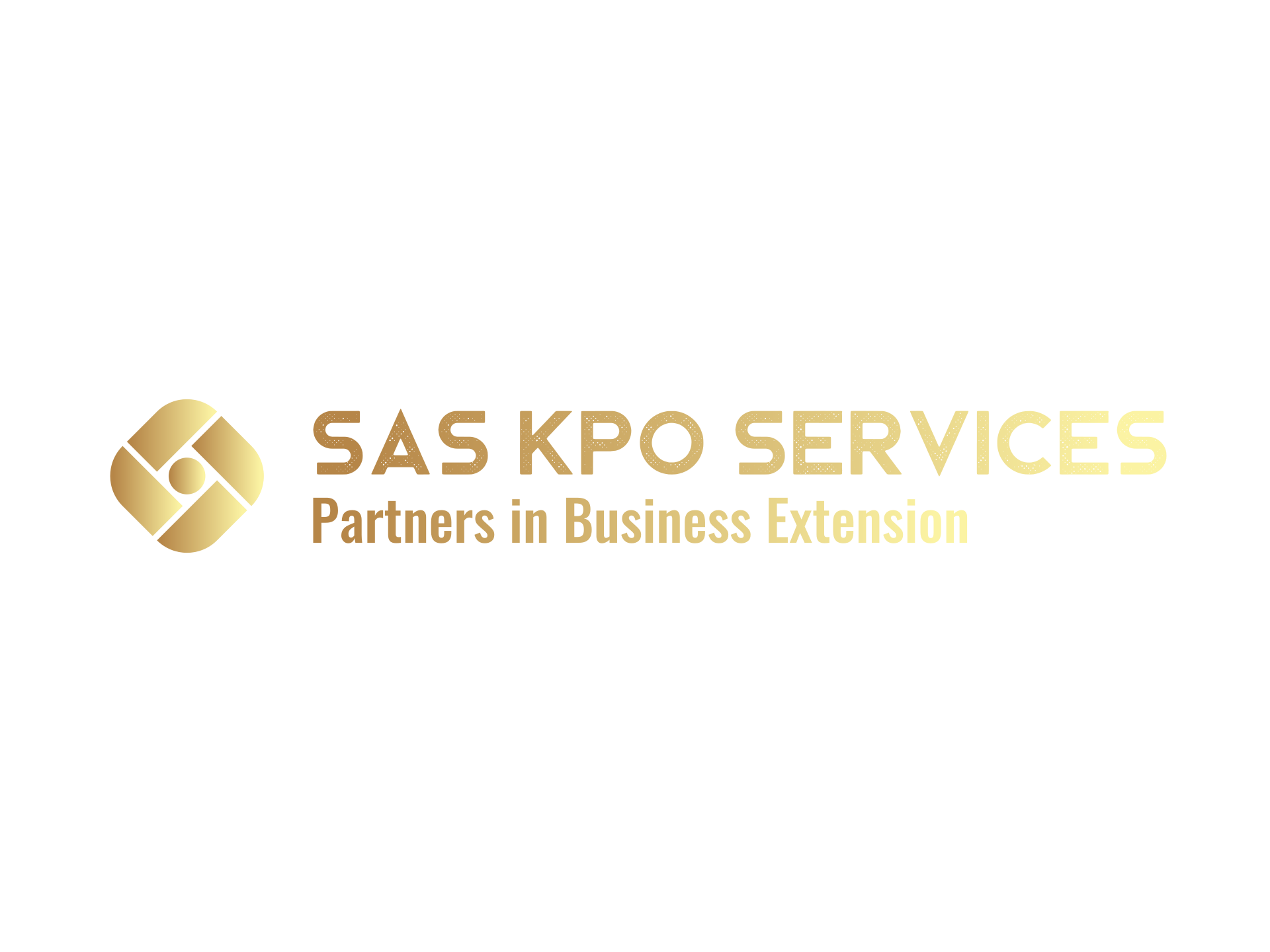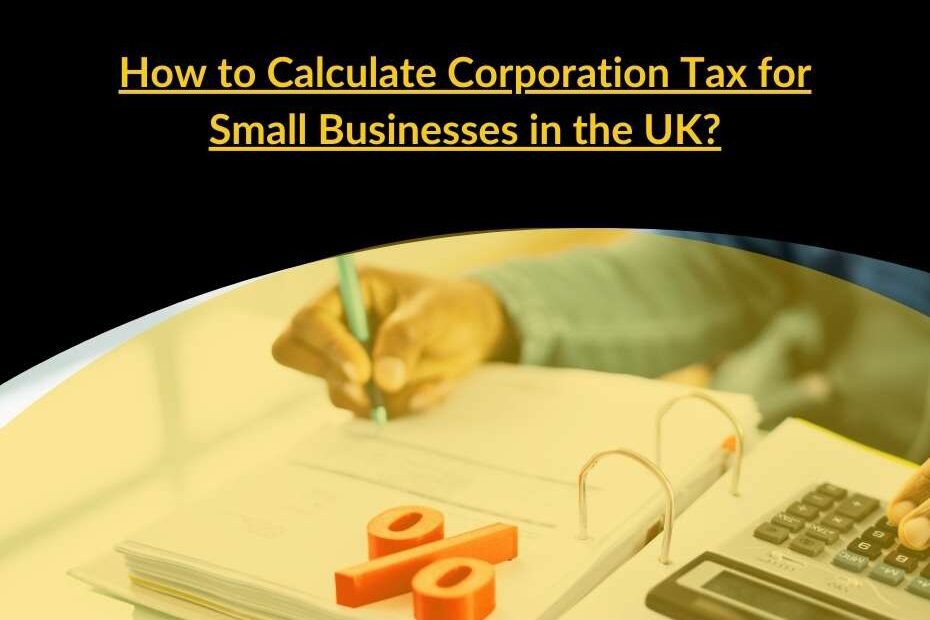At SAS KPO Services, we understand the importance of managing your corporation tax effectively. The UK imposes corporation tax, also known as corporate tax or business income tax, directly on the profits earned by companies, public corporations, and other entities. This tax is applied to the profit that remains after deducting allowable expenses and tax reliefs during a specific accounting period. Here is a quick guide on how to calculate corporation tax for small businesses in the UK, along with the main components, rates, reliefs, and important considerations.
Understanding Corporation Tax

A business applies corporation tax to trading profits from its income statement. These profits include sales revenue minus any expenses the business has incurred. The tax rate and thresholds are regularly reviewed, and corporation tax is paid directly to HMRC. The main components of corporation tax include:
- Trading Profits: Profit generated from the company’s primary business activities.
- Chargeable Gains: Profits from selling assets such as land, property, shares, and machinery.
- Income from Other Sources: This can include rental income.
- Investments: Earnings from investments such as dividends and interest.
Current Corporation Tax Rates in the UK (2024/25)–
- For annual profits of £250,000 or more: 25% (Main Rate)
- For annual profits of £50,000 or less: 19% (Small Profits Rate)
For example, if your company made £20,000 in an accounting period and had £10,000 in expenses, the remaining £10,000 would be taxed at 19%, resulting in a corporation tax liability of £1,900.
Calculation of Corporation Tax for Small Businesses in the UK

Calculating corporation tax can seem daunting but breaking it down into clear steps can make the process more manageable. Here is a simple guide to help you understand how to calculate corporation tax for small businesses in the UK:
Calculate Sales and Income
Start by creating a detailed profit and loss statement for your business. This statement should include all sources of income your business has earned during the accounting period. This includes not just revenue from your core business activities but also any additional income such as interest from savings accounts or investments. By clearly documenting all income, you establish the total amount that will be used to determine your taxable profits.
Calculate Expenses
Next, list all business-related expenses. These are the costs that your business incurs while operating. Common expenses include travel costs, training fees, marketing expenses, business insurance, software subscriptions, accounting services, employee salaries, and office supplies. It is important to include all these expenses because they reduce your taxable profit. By calculating the total expenses, you can determine how much of your income is offset by costs, which helps in calculating the taxable profit.
Adjust for Capital Allowances and Non-Deductible Expenses
Certain expenditures, such as those on capital assets like computers, machinery, and office furniture, are treated differently for tax purposes. We call these capital allowances. You need to adjust your profit calculation to account for these allowances. Additionally, some expenses, like those for entertainment, are not tax-deductible and should be adjusted accordingly. You also need to consider how your assets lose value over time, known as depreciation, in your calculations. This adjustment ensures you pay tax only on the profit accurately represented after considering these factors.
Example Calculation:
Let us go through an example to illustrate how these steps work in practice:
- Total Income: £100,000
This is the total amount your business earned. - Total Expenses: £50,000
This includes all allowable costs like salaries, travel, and marketing. - Profit: £50,000
This is calculated by subtracting expenses from total income (£100,000 – £50,000). - Adjustments:
- Add Depreciation: £1,000
Businesses add back depreciation to profit since it is a non-cash expense. - Add Entertainment Fees: £200
If you consider these non-deductible, you need to add them back. - Less Capital Allowances: £2,000
Businesses deduct capital allowances from profit as allowable deductions.
- Add Depreciation: £1,000
- Profit Liable to Corporation Tax: £49,200
After adjustments, the profit subject to corporation tax is £49,200. - Tax Due:
Apply the corporation tax rate (19%) to the profit liable to tax:
£49,200 x 19% = £9,348
By following these steps, you can accurately calculate the amount of corporation tax your business owes. Understanding this process helps you manage your tax obligations effectively and ensures compliance with UK tax regulations. So, If you find the process complex, seeking assistance from a tax professional can help ensure that all calculations are accurate and that you take advantage of any available reliefs.
Reliefs to Reduce Corporation Tax Liability

For small businesses in the UK, managing corporation tax efficiently is crucial to maintaining healthy cash flow and reinvesting in growth. Fortunately, there are several reliefs available that can significantly reduce a company’s tax liability, making it easier to manage finances and keep more profits within the business. Here is a closer look at some of the key reliefs available to small businesses:
Research and Development (R&D) Relief
R&D Relief supports companies actively involved in innovative projects in science and technology. This relief is not just for big companies—small and medium-sized businesses can also benefit if they invest in developing new products, services, or processes, or improving existing ones. R&D Relief can significantly reduce corporation tax liability by allowing companies to deduct a larger percentage of their qualifying R&D expenditure when calculating taxable profits. In some cases, this relief can even result in a cash payment from HMRC, which can be invaluable for businesses investing in future innovations.
Patent Box Relief
Patent Box Relief is a tax incentive for companies that profit from patented inventions. This relief allows businesses to apply a lower rate of corporation tax to profits earned from patented products, services, or processes. The aim is to encourage companies to retain and commercialise intellectual property within the UK. By reducing the effective tax rate on profits generated from patents, companies can reinvest these savings into research and development, further enhancing their competitive edge and fostering innovation.
Annual Investment Allowance (AIA)
The Annual Investment Allowance (AIA) provides 100% tax relief on qualifying investments in plant and machinery, up to a limit of £1 million in the year of purchase. This allowance is particularly beneficial for small businesses that need to invest in equipment, vehicles, or other assets to grow their operations. By claiming AIA, companies can deduct the full cost of eligible items from their taxable profits in the year of purchase, providing immediate tax relief and improving cash flow. This relief is a powerful tool for businesses looking to invest in assets that will drive productivity and growth.
Marginal Relief
Marginal Relief is available for companies with profits between £50,000 and £250,000, offering a gradual reduction in the corporation tax rate. This relief helps ease the transition between the lower and higher rates of corporation tax, ensuring that businesses with mid-level profits do not face a sudden increase in tax liability. So, the Marginal Relief effectively reduces the amount of corporation tax payable, helping businesses to manage their tax burden more effectively and retain more profit for reinvestment.
Trading Losses
Trading losses can be a valuable tool for reducing corporation tax liability. Businesses that incur losses in one accounting period can set these losses off against profits from other periods, thereby reducing their overall tax bill. This relief can be applied in several ways: against profits from the current year, carried back to offset profits from the previous year, or carried forward to offset future profits. This flexibility allows businesses to make the most of their losses, ensuring that they do not pay more tax than necessary when their financial performance improves.
Creative Industry Tax Reliefs
The UK offers a range of tax reliefs specifically for businesses in the creative industries, including film, animation, video games, television, theatre, orchestra, and museum exhibitions. The government provides tax credits or enhanced deductions to support the production of creative content and cultural works. For example, film production companies can claim Film Tax Relief, which provides a payable cash rebate based on qualifying UK production expenditure. Similar reliefs exist for other creative sectors, helping to reduce the overall tax burden on businesses and encourage investment in UK-based productions.
Employee Share Scheme and Staff Party Expenses
Lastly, by offering employee share schemes, businesses often treat these schemes as allowable expenses and can benefit from tax deductions. Employee share schemes not only help companies reduce their tax liability but also encourage employee engagement and retention by offering staff a stake in the business. Additionally, expenses related to staff parties or other employee entertainment can also be deductible under certain conditions, further lowering taxable profits. These deductions not only provide financial relief but also promote a positive work environment, boosting morale and productivity.
Each of these reliefs offers a unique way for small businesses to manage their corporation tax liability more effectively. By taking advantage of the available reliefs, companies can keep more of their hard-earned profits, invest in growth, and ensure long-term financial stability. At SAS, we specialise in navigating the complexities of corporation tax for businesses, ensuring all entitled reliefs are claimed and HMRC requirements are met.
Why Corporation Tax Matters

Corporation tax plays a vital role in the UK economy. It’s not just a financial obligation for businesses; it’s a key source of funding for many public services that everyone relies on. The money collected from corporation tax helps pay for essential services like healthcare, education, and transportation. Without this tax, it would be challenging to maintain and improve these services that benefit all of us.
Moreover, corporation tax helps ensure that businesses contribute fairly to the economy. By taxing company profits, it ensures that all businesses, regardless of their size, share in the responsibility of funding public services. This creates a level playing field and promotes fairness among companies.
Additionally, corporation tax can stimulate economic growth. It provides incentives for businesses to invest in their operations and expand. When companies see that their profits will be taxed, they are often motivated to reinvest in their businesses, which can lead to new opportunities, more jobs, and overall economic development.
Paying and Filing Corporation Tax

Corporation tax is an important responsibility for businesses, and it is crucial to manage it properly. Here is how it works: You need to pay the corporation tax within nine months after the end of your accounting period. For example, if your accounting period ends on December 31, you should make the tax payment by September 30 of the following year.
Alongside the payment, you must submit your corporation tax return within 12 months of the end of your accounting period. This return includes all the details about your business’s profits and how much tax you need to pay.
Penalties may result from missing these deadlines. If you miss the payment or filing dates, your business could face additional charges. In severe cases, unpaid taxes might even result in legal actions, such as court proceedings, takeover of assets, or, in extreme situations, the closure of your business.
Lastly, Keeping track of these deadlines and ensuring timely payments and filings helps avoid penalties and keeps your business in good standing with the tax authorities.
How SAS KPO Services Can Help
At SAS, we provide expert outsourcing solutions to help manage your corporation tax efficiently, making sure your business stays compliant and benefits from available reliefs. We are here to support your journey in navigating how to calculate corporation tax for small businesses in the UK.
For more detailed guidance on calculate corporation tax for small businesses in the UK, contact us. Give us your tax burdens so you may concentrate on expanding your company!

